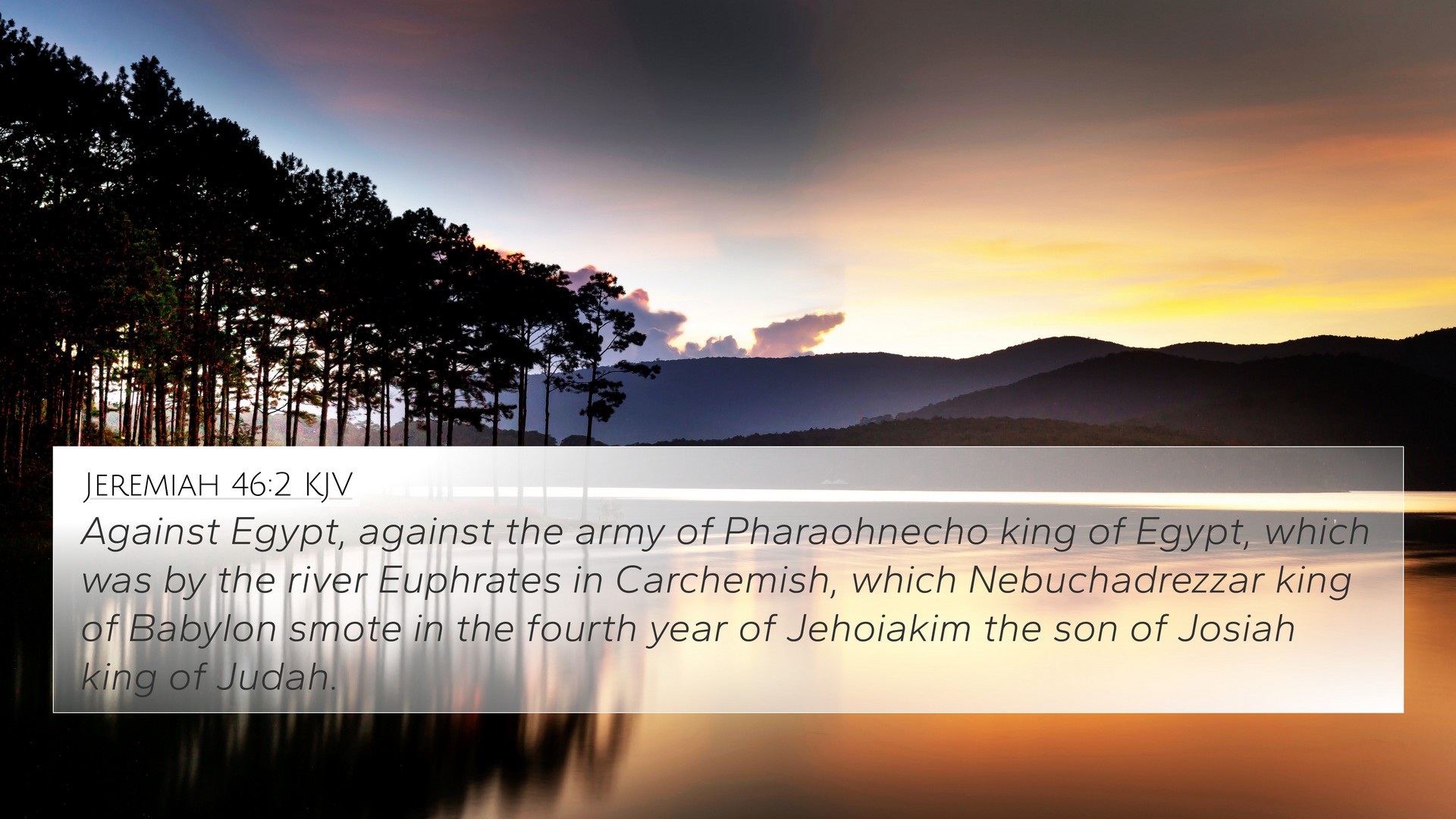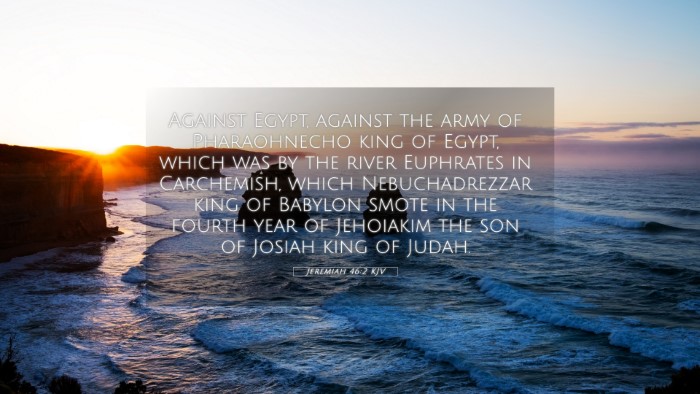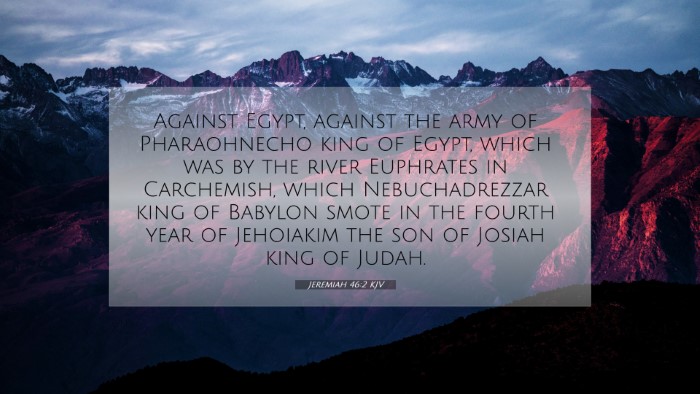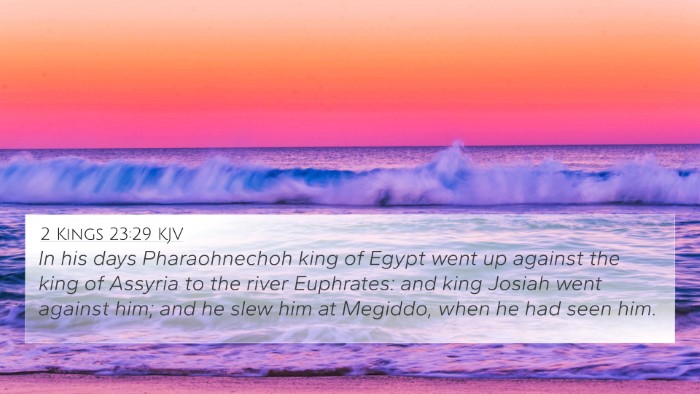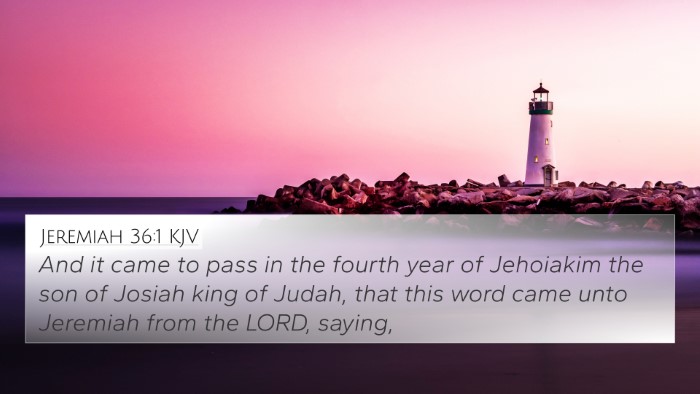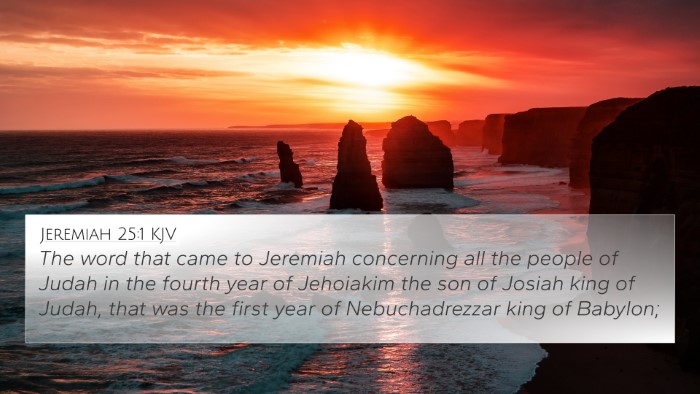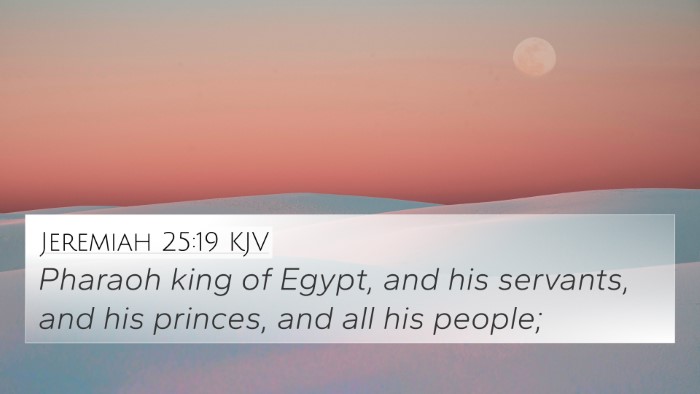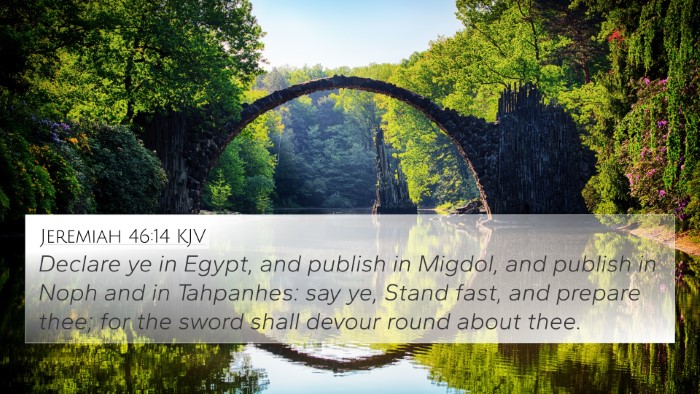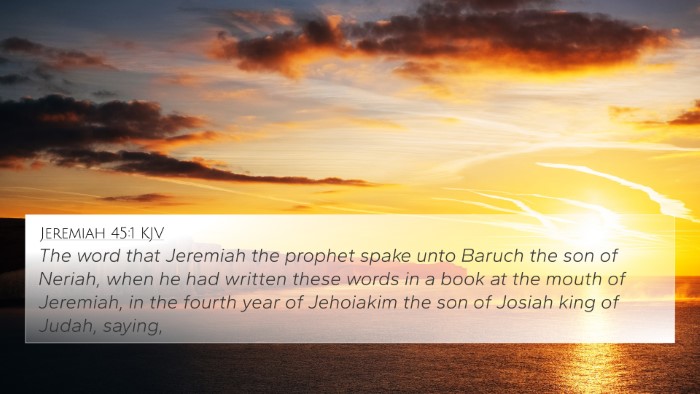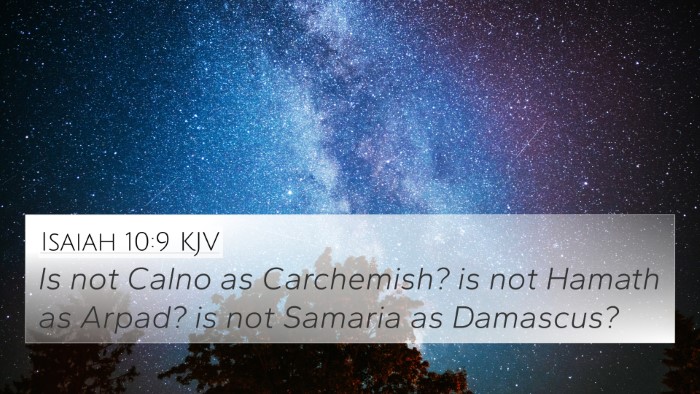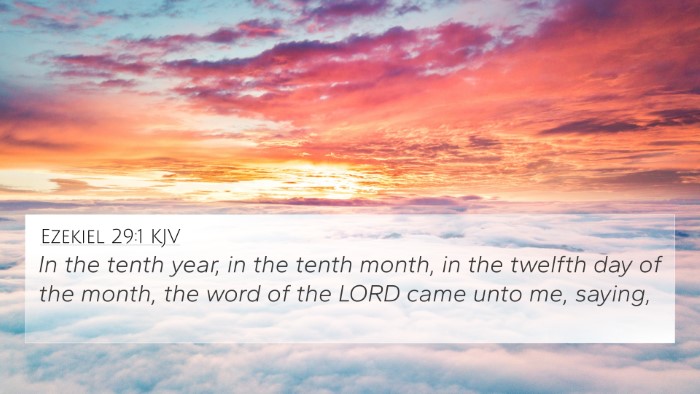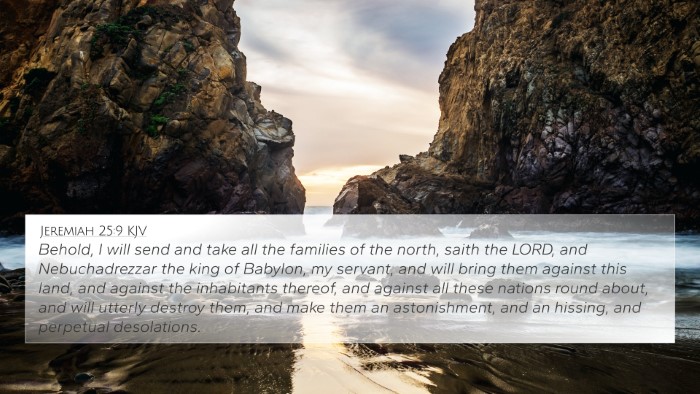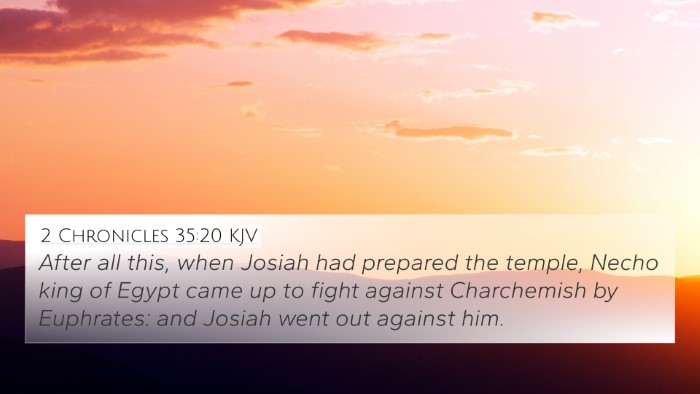Understanding Jeremiah 46:2
Jeremiah 46:2 states: "Against Egypt, concerning the army of Pharaoh Necho king of Egypt, which was by the river Euphrates in Carchemish, which Nebuchadnezzar king of Babylon smote in the fourth year of Jehoiakim the son of Josiah king of Judah."
This verse sets the stage for prophetic declarations concerning Egypt’s impending judgment and serves as a historical reference. The broader significance of this prophecy can be deeply understood through thoughtful analysis that connects various Biblical texts and themes.
Connection and Context
The context of Jeremiah 46:2 reveals a time when Egypt was confident in its military might but was about to face divine judgment. The Lord, through Jeremiah, brings swift correction against Egypt's arrogance. Various commentaries help to analyze the verse's meaning and implications:
-
Matthew Henry's Commentary: Henry emphasizes the theme of judgment against the nations and highlights God's sovereignty over all nations, including Egypt. He notes how this prophecy serves to remind Israel of their own downfall if they did not return to God.
-
Albert Barnes' Notes: Barnes focuses on the historical context, clarifying that Pharaoh Necho's defeat illustrates the fallibility of human power. He also elaborates on the significance of Nebuchadnezzar's military actions as part of God's overarching plan.
-
Adam Clarke's Commentary: Clarke draws connections between this prophecy and the larger narrative of Israel’s history, indicating how Egypt's fate intertwines with Israel’s own. His analysis points to the inevitable triumph of God's purposes over human ambitions.
Thematic Bible Verse Connections
Jeremiah 46:2 holds numerous parallels with other biblical texts that explore themes of judgment, sovereignty, and the rise and fall of nations. Below is a list of relevant cross-references that enrich our understanding of this verse:
- Isaiah 19:1 - "The burden of Egypt." This verse introduces God’s judgment on Egypt, echoing themes present in Jeremiah.
- Ezekiel 30:4-5 - Prophecies of Egypt's destruction and its neighboring allies reflect the prophetic assurance that God controls the outcomes of nations.
- 2 Kings 24:7 - The defeat of Egypt by Babylon reveals the shifting power dynamics that Jeremiah prophesies.
- Habakkuk 1:6 - The Chaldeans (Babylonians) as God’s instrument of judgment parallels God’s use of Babylon against Egypt.
- Daniel 2:37-38 - Expresses the theme of God's sovereignty over kingdoms, supporting the overarching message found in Jeremiah.
- Matthew 24:2 - Jesus speaks on the destruction of nations, an interesting parallel to prophetic warnings involving Egypt.
- Revelation 16:12 - The drying up of the Euphrates, creating a connection with historical battles depicted in Jeremiah, reinforcing God’s power over nations.
- Jeremiah 1:10 - God’s appointed role for Jeremiah relates to the broader theme of divine authority in judging nations.
- Micah 5:6 - This serves as a prophetic reminder of how God can use empowering nations to fulfill His judgment.
Insights from Cross-Referencing
Analyzing Jeremiah 46:2 alongside other biblical verses allows for a deeper comprehension of the message God conveys regarding His sovereignty and the consequences of national pride and rebellion against Him.
Such comparative study highlights the importance of cross-referencing in Biblical interpretation. Here are some tools and methods for effective Bible cross-referencing:
- Bible Concordance: This tool lists terms and phrases found in the Bible, assisting scholars in locating related verses.
- Bible Cross-Reference Guide: These guides offer connections between verses, strengthening one's thematic analysis.
- Cross-Reference Bible Study: Engaging with multiple verses consolidates understanding of biblical themes.
- How to Use Bible Cross-References: A systematic approach aids believers in finding interconnections.
- Bible Cross-Reference System: Utilizing a system helps categorize scripture thematically.
- Bible Reference Resources: Various study Bibles offer insights into cross-referenced verses, enriching one's study.
Conclusion
Jeremiah 46:2 serves as a profound reminder of God’s authority and the fall of nations, with significant historical implications. By leveraging connections between related scriptures, believers can gain vast insights into God’s judgment, grace, and the intricacies of His plan. As you dive deeper into this verse, consider exploring cross-referencing methodologies, as these practices illuminate the rich tapestry of the scriptures.
